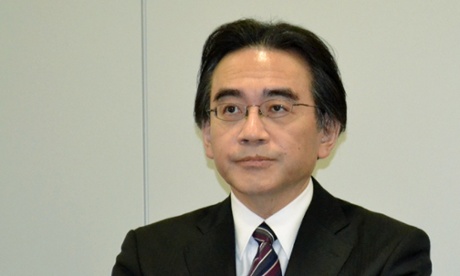
Nintendo is no stranger to activity-tracking software, thanks to its series of Wii Fit games. Now the company is planning to move into the hardware market, with a specific focus on sleep-tracking.
Nintendo has teamed up with US company ResMed to work on a handheld-device that will track sleep and fatigue, with plans to launch it during the company’s next financial year, which ends in March 2016.
“By using our know-how in gaming... to analyse sleep and fatigue, we can create something fun,” Nintendo president Satoru Iwata told a press conference in Japan, according to Reuters.
The new device will be the first product from Nintendo’s healthcare division, although Iwata declined to reveal more details of its cost and exact launch date, beyond the fact that it might involve a recurring subscription.
“We only start something new if we think we will be able to create a big market, but as I’m not able to discuss pricing plans and other details today I don’t think there’s much point in giving a figure for our projected scale,” he said.
Nintendo’s move into healthcare was announced in January 2014, with Iwata saying at the time that its first “quality of life” product would not be a wearable gadget or be used in the living room.
He was telling the truth: the new gadget is designed to sit on a bedside table while its owner sleeps. It will compete with more general activity-tracking devices made by companies including Fitbit and Withings, which include sleep-tracking features.
Nintendo’s plans also mean it will be competing with Microsoft in a new market beyond games consoles. The latter company has just unveiled its Microsoft Band gadget, which will track sleep quality as well as daytime activity.
Nintendo’s announcement came as the company revealed improved financial results, including a return to profit after a period of heavy losses.
For the six months to 30 September 2014, Nintendo reported net sales of ¥171.4bn (£983.3m) and a net profit of ¥14.3bn (£82m). 3.2m sales of the Super Smash Bros 3DS game contributed to the upswing, as did growing sales of Nintendo’s Wii U console.
That’s likely to dampen down – for now at least – questions from journalists and analysts about whether Nintendo will start making some of its games available for smartphones and tablets.
As its healthcare plans show, for now the company remains focused on its own hardware, even as it expands its operations beyond games.
• Nintendo is back: why summer 2014 belongs to the Wii U

